- Home
- Susan Hill
Jacob's Room Is Full of Books: A Year of Reading Page 5
Jacob's Room Is Full of Books: A Year of Reading Read online
Page 5
Evenings at their house – Kissing Tree House, named that by Jack because he said ‘kissing is a lovely thing’ – just outside Stratford-upon-Avon, were formidable. I found them nerve-wracking. The house was very formal, as were the evenings, and the ritual of them never varied. Greeted at the top of an imposing flight of steps by both JB and Jacquetta (in black tie and long dress respectively), one then walked down a marble corridor with niches on either side full of sculpture – busts and archaeological finds, all well lit and displayed. It was like walking down the corridor of a classical gallery. Drinks were served, the old-style drinks – gin, whisky, rum, sherry, dry martini, whatever you wanted – mixed by Jack. And champagne, always. The dining table was round, there was a careful placement, one was served by a butler, and the cooking, by their cook/housekeeper, was extremely good, plain English food. Conversation was led by Jack, and he was a good host, skilled at introducing his guests to one another.
The second time we went, I was heavily pregnant with my first daughter. I had been initially placed on Jack’s right, an honour indeed, but when he saw me, he effected a swift table re-arrangement. ‘I like you,’ he said, quite seriously, ‘but in your state, I’m frightened of you. I don’t want you having a baby while you’re sitting next to me.’ So I was duly moved.
My daughter was born a week later and the NHS maternity home was across a meadow from the Priestleys’ house. When she heard the news, Jacquetta walked over one afternoon visiting hour. I was startled. She was very charming but somehow did not at all fit into the surroundings of a ward of sixteen new mothers. My baby was in her cot at the side of my bed and every other cot had gooing grandmothers and aunts and friends, waxing lyrical about the child’s heavenly beauty. Jacquetta looked intently at my daughter for some ten seconds. Then she nodded.
‘Nice and neat and compact,’ she said, ‘and that’s all one can say at this stage.’
I did not feel cheated at the absence of fawning and gooing. I got plenty of that from everyone else. But Jacquetta was just not that sort of woman. I appreciated her visit very much.
I found her, as did many people, formidable, handsome rather than beautiful, very stately, wonderfully well dressed. Her evening gowns were couture. She was immensely intelligent, learned indeed, and she did not suffer fools. But she was kind to me. Jack died a short time after our second daughter was born prematurely, living for five weeks, and we went to his funeral, in Stratford’s Guild Chapel. Jacquetta looked statuesque, contained, poised – and hauntingly grief-stricken.
A little time afterwards, she wrote to me about our dead daughter, apologising for not having done so at once – she had been fully occupied by Jack’s illness and dying. Her letter was one of great compassion, understanding and tenderness and I will never forget it. Her guard was finally down and always after that, when we met, I felt differently about and towards her.
I liked Jack but I could never entirely get a handle on him. Maybe he was much simpler than one supposed and there were no great hidden depths. Maybe what you saw was what you got. He thought a lot of his own work, though he was modest about it in public. His novels do not hold up now. They are dated without being classic. The two plays will be revived from time to time. But I think he would have minded very much that no one much under the age of fifty has read or even heard of him – at least not beyond the brilliant revival of An Inspector Calls which is also a standard GCSE text these days. At least he would have been pleased about that.
WILD AND WUTHERING. There are several trees down in the fields around and also in the Bayfield woods. All old trees. You can see how rotten they are inside, just waiting for a strong wind. Looking around, I see so many more which are only just upright. They will be the next. Are we re-planting trees to replace them? I often look at London or other city streets – Oxford and Norwich are good examples – lined with wonderful mature trees and wonder about that, because the Victorians planted these and they are almost past their sell-by dates. Councils are forever closing roads to take down dangerous trees, but when they are all gone, how altered will our urban street landscapes be. Trees are green lungs for cities and shelter for birds and insect life. And beautiful. How many children never go near the country, but walk to school past trees that are bare, then in bud, in leaf, thick and heavily green through the summer holidays, but, as the new school year starts, begin to turn and then fall conkers. Ash keys. These trees could be their introduction to the natural cycle, but if we don’t plant more – and I see no evidence that we are doing so – the streets will be bleak. The same goes for municipal parks, for which we owe the Victorians, again, such gratitude. But that fine thing, the National Lottery, has stepped in here and parks have been rescued from near-wildernesses to become again places where children play, the old sit on benches, mothers with babies chat and ducks swim on ponds and are fed.
Meanwhile, yesterday I saw a nuthatch in one of our spinney trees, then, after a moment, a tree creeper. The insect life in trees, which sustains these tiny birds, is unseen, unheard, and vital. Every time I read someone mentioning that we must save pandas and wolves and polar bears, I want to write letters to the paper about insects.
IN THE END I decided it was too dangerous to go out. Slates were flying. So I went up into the attic to open some mysteriously sealed boxes. I thought that I had found and shelved all the old Ladybird books … but there was another case. I sat on the floor and was lost in them until it grew dark. There are another two bookcases full in the children’s bedroom, and grand-daughter Lila is now old enough to pick some out herself and take them off into a cosy corner. As I write this, she is only just beginning to read but the joy of the older Ladybirds – before around 1970 – has always been the pictures. I found her absorbed in a pile that included Garden Birds, and What to Look for in Winter, and the one on her lap, which she was looking at intently, Julius Caesar and Roman Britain. I think I learned more from Ladybirds than I did from lessons. History. Heroes. Saints. Legends. Science. Nature. Great Artists. ‘How It Works’. ‘People Who Help Us’. Hobbies. I had also had them read to me, and in turn read myself, one or two of the early story rhymes. I still have them by heart.
From her little cottage window,
Mrs Downy Duck looked out:
Said, ‘Oh, what a frosty morning!
What a lot of ice about!’
(I didn’t look that up.)
The illustrations to the fairy stories, before someone had the bright idea of updating them, were doors into a particular world. Cinderella. The Princess and the Pea. Beauty and the Beast. I close my eyes and see the ball gowns of the Ugly Sisters and the satin breeches worn by Prince Charming … The high high bed with its many mattresses and a single pea tucked under the bottom one … The Old Queen answering the palace doorbell herself in the middle of the night …
Several were such favourites I read them aloud over and over again, at innumerable bed times, yawning the while. The Little Red Hen. Chicken Licken. The Enormous Turnip. The Magic Stone. The Magic Porridge Pot. The Gingerbread Man. (When he was one quarter gone, being eaten by the fox, a small hand would shoot out and close the book so as not to hear or look, for What Happened Next was unbearable.)
Chicken Licken was the most boring. The Enormous Turnip not far behind.
If you want to be reminded about King Canute and the waves, or King Alfred and the burnt cakes, or Sir Walter Raleigh laying down his cloak over the puddle for Queen Elizabeth, there are Ladybird books for you to learn the essential stories in five minutes. What kind of nests wrens or jackdaws make, what Blackthorn or May blossom look like – all here with pretty clear pictures.
Some of the old Ladybirds have become wonderfully dated. Do not go to The Computer for any new electronic information, and fire engines and police cars look totally different today. Uniforms have all changed. How long since nurses wore swan-like white caps?
In later years, Ladybird tried to bring themselves up to date by grabbing trendy cartoon characters as they flas
hed by – Scooby-Do, Transformers, Superman. The pictures were ugly, and no sooner were the books out than the kids were way in the distance with something else.
And now variations on Ladybird books have sprung to life, and are given to adults as Christmas joke books, to put in the downstairs loo. They are read on Boxing Day and then are left behind wherever they fell … How It Works: The Dad. The Ladybird Book of the Hipster. The Ladybird Book of the People Next Door. They are briefly funny, although maybe the best thing about them is the idea and then you can make up your own. I thought of doing a Ladybird Book of the Hip Replacement.
It is a cynical money-making ploy and it has worked. I am happy with publishers making money, cynically or not. They can always spend it on the rest of us. Meanwhile, I am back with Ladybird Bible Stories: Moses Prince and Shepherd. If I pull one out at random, I never fail to find something that delights, teaches, reminds, makes me smile. And of how many book series can you say that?
THE EGRET, which has been around for a while now, has acquired a mate and there are signs of nesting. To think, these birds were almost extinct a hundred years ago. They still look primeval, though …. avian pterodactyls, like herons. There is something about herons that makes me shudder and I think the only reason I don’t shudder at egrets, which are so like them in shape, is because egrets are white, like doves and angels.
TALKING OF EVIL, did anyone ever create a character as evil as Mr Hyde? Shakespeare, of course, in Iago, but he is altogether real and human, there is no touch of the chemistry lab about him. Some would say Dracula. But Dracula goes one step further, into pure fantasy and so is less frightening – to me, anyway. Not sure why, but I can just believe Dr Jekyll could turn into Mr Hyde. Vampires are the stuff of the legendary and the fantastic.
Robert Louis Stevenson’s novella improves every time I read it. I generally find something new, something better, in its pages. Last night, I was struck by how cleverly and carefully and cunningly Stevenson creates a sense of both the sinister, which is mainly suggested by way of atmosphere and small detail, and the pure evil, which is seen, heard, experienced. Even though the narration begins calmly and the tone is measured, the screw has begun to turn in the very descriptions of the area of London in which Dr Henry Jekyll lives.
I was coming home from some place at the end of the world, about three o’clock of a black winter morning, and my way lay through a part of town where there was literally nothing to be seen but lamps. Street after street and all the folks asleep – street after street, all lighted up as if for a procession and all as empty as a church – till at last I got into that state of mind when a man listens and listens and begins to long for the sight of a policeman.
A few pages later, there is a scene set at nine o’clock in the morning, but when the first fog of the season has already begun to close in. The wind makes the clouds shift about so that one moment it seemed like dreadful night, the next, like a terrible brownish twilight. ‘The dismal quarter of Soho seen under these changing glimpses, with its muddy ways and slatternly passengers … seemed, in the lawyer’s eyes, like a district of some city in a nightmare.’
But it is the descriptions of Hyde which chill the reader to the bone. There are hints and suggestions … but in the end we are not given a clear, and full, detailed description of the man. We build it up ourselves from the author’s half-glances.
Every time I read Stevenson’s novella I am brought up short by how good it is. There is not a word out of place, he does not put a narrative foot wrong. The style, the structure, the quality of the writing, the creation of evil, and fear, and an atmosphere of pent-up near-hysteria … all of these make me admiring and envious. Next to Dickens, I think RLS was the greatest writer of his time.
I AM NOT GOING OUT again probably until June. The wind is like a razor blade shaving off a layer of skin.
I WAS THINKING that when we read as children we just give ourselves over to the book. The story. The characters. The places. The atmosphere. We immerse ourselves in it, we soak ourselves. On the whole, we are uncritical, too, or at least critical only in a very simple way. ‘I loved that.’ ‘I want to read the next one like that.’ Or ‘I didn’t like that story.’ ‘It was a bit boring.’ Nothing more sophisticated, no reasons given, none necessary. I remember trying to read Swallows and Amazons and getting perhaps one third of the way before abandoning it, and then doing the same again, and then trying one or two others of Arthur Ransome’s stories and doing the same. I could not relate to the children, I had no idea what sailing was all about – sailing for me was on the sea, trawlers out catching fish, or me standing watching the odd pleasure steamer round Scarborough Bay, a lifeboat being launched. But these children who lived in a place, the Lake District, that I could not picture and who had their own small boats and went off in them by themselves – it meant nothing. I could never dive deep into those books and immerse myself.
But that was rare. I think it would be with most Reading Children. Reading is magic. Books are magic. It starts when we are shown picture books and realise there is another world beyond the everyday one we know. Once we can read ourselves, we live inside the magic. The only problem is that we have to emerge at the end of a book, and we don’t want to leave and return to that dull domestic world we know. The only solution to that problem, of course, is that there is always the next book, and the next and there is bonus magic if it is another in a series we already love, so we are plunging back into a magic other world but one we already know. We feel a lift of the heart, a lurch of the stomach, when we find ourselves in it again.
When does it all stop? Because although Reading Children become Reading Adults, and I can become almost as immersed in a book now as I could at aged nine, it still is never quite the same. I don’t think it has anything to do with adult duties and distractions – or only a little. We can carve out a whole afternoon or evening to read and plan not to be interrupted. Besides, we can just as easily be pulled up to the surface, when we are children, by ‘Time for bed’, ‘Time for lunch’, ‘Time for homework’, ‘Go and wash your hands’, ‘Get your face out of that book and go outside for some fresh air’.
No, it starts when we have to do something WITH our books. Talk about them. Describe them. Recount the plot. Write an essay about them. And later, analyse, criticise, discuss. The magic world has a new purpose, a Gradgrind purpose, an examination purpose. It is a bit like being taken round the back of a puppet show to be shown how the strings work. A friend who adored the TV series All Creatures Great and Small was given the opportunity to watch some of the filming. The programmes were never the same for her again. The secrets were revealed. The set was just a set, the house only the facade of a house. The magic had been explained away.
I am certain that writers are formed in part by the books they have read and absorbed and it troubles me that not all writers or aspiring writers are Reading Writers. Increasingly, I meet creative writing students who do not read. They are ignorant of the best. They are often even ignorant of the worst. So how on earth can they want to write themselves? How do they know what it is all about? Read, read, read is the only advice I give, if asked. Read those writers who are better than you or I will ever be. In the end, that is the only way you will learn.
In The Scarlet Tree, the second volume of his fine and now underrated autobiography, Osbert Sitwell says that the writer, like the child, flourishes best in an atmosphere of affection and encouragement. Maybe that is all the writer needs, other than to be surrounded by books, to which she has open access. A Reading Child.
But writers have flourished in conditions of great adversity and discouragement. Maybe that’s something to do with the stubbornness and sheer bloody-mindedness innate in some of us. Putting obstacles in the path of youthful ambition can have wonderful results in the opposite way from those intended. But only sometimes. Only sometimes.
THERE WAS A SNIPE by the river today.
DAVID’S ANNIVERSARY. Always remembered, with love. I was go
ing to marry him. A turbulent affair was just coming right.
It was on such a beautiful early spring day as this that he went for his last walk, in the Gloucestershire countryside. Blackthorn. The first flush of leaves on the trees. Hazel catkins. Scurrying blackbirds, low in the hedgerows. And his churchyard, at Buck-land, full of daffodils. He died in that church, alone, quietly, suddenly, quite unexpectedly, after having felt tired. He was forty-three. I was thirty.
David disapproved of purple patches, of ornate flourishes and unnecessary decoration, in music and in literature. He was right. Al Alvarez says it definitively in The Writer’s Voice:
High style is the writer’s equivalent of putting on airs and dropping names … What is sometimes passed off as ‘fine writing’ … is usually little more than a set of secondhand stylistic devices that cost the writer nothing and flatter the reader into believing that, through it, they have graduated into a better class of literature. Fine writing indulged for its own sake also projects the image of an exquisite sensibility exposing itself for admiration …
Less is more. That does not mean bland, dull, flat. It means spare and elegant and lean, with every single word pulling its weight and, if it is not, it is redundant. Get rid of it.
It was Dr Johnson who said ‘Read over your compositions, and where ever you meet with a passage which you think is particularly fine, strike it out.’ It is a fine balance, though. Dickens, that master of literary oratory and thundering rhetorical prose, is the great exception to the rule.
I have always found it better not to read any contemporary fiction while writing it, because I can catch another writer’s style like measles and the same applies to reading Dickens, whose cadences, so magnificent coming from him, in one’s own prose appear bloated and pompous.

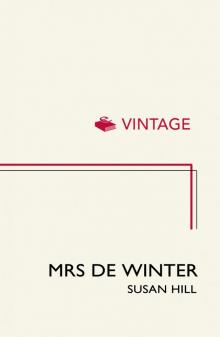 Mrs De Winter
Mrs De Winter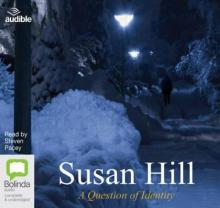 A Question of Identity
A Question of Identity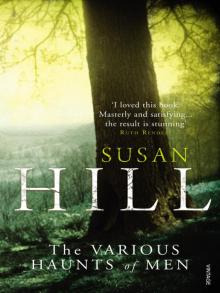 The Various Haunts of Men
The Various Haunts of Men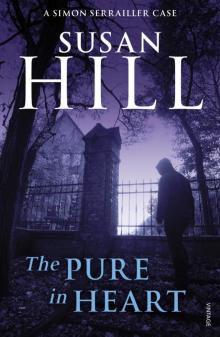 The Pure in Heart
The Pure in Heart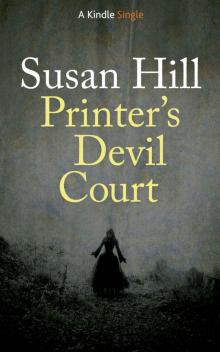 Printer's Devil Court
Printer's Devil Court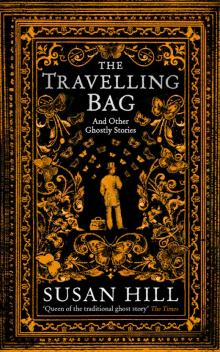 The Travelling Bag
The Travelling Bag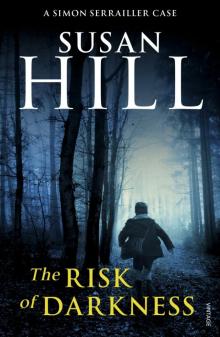 The Risk of Darkness
The Risk of Darkness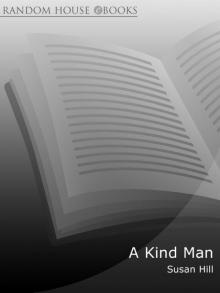 A Kind Man
A Kind Man Black Sheep
Black Sheep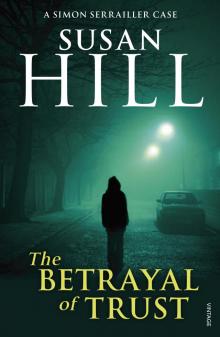 The Betrayal of Trust
The Betrayal of Trust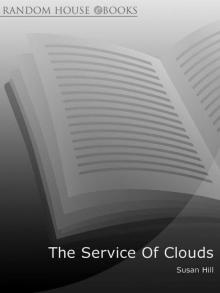 The Service of Clouds
The Service of Clouds Betrayal of Trust
Betrayal of Trust The Small Hand
The Small Hand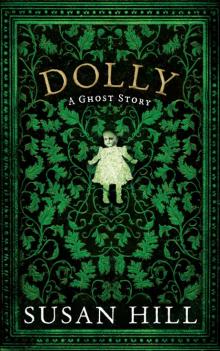 Dolly
Dolly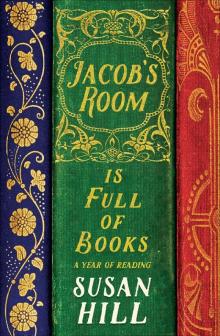 Jacob's Room Is Full of Books: A Year of Reading
Jacob's Room Is Full of Books: A Year of Reading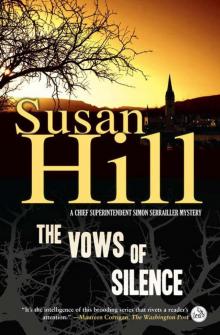 The Vows of Silence
The Vows of Silence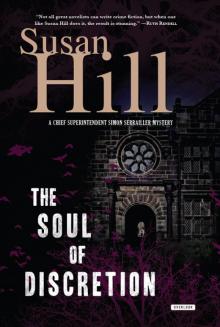 The Soul of Discretion
The Soul of Discretion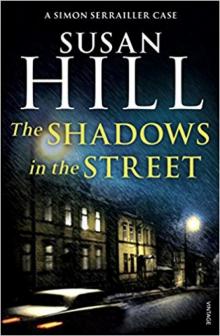 The Shadows in the Street
The Shadows in the Street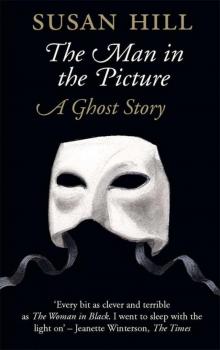 The Man in the Picture
The Man in the Picture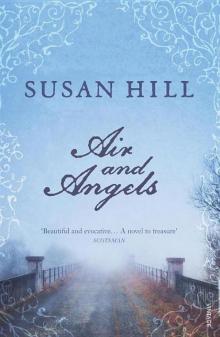 Air and Angels
Air and Angels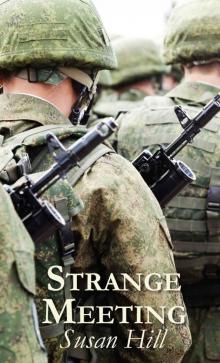 Strange Meeting
Strange Meeting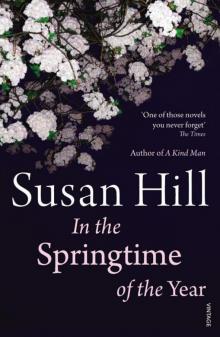 In the Springtime of the Year
In the Springtime of the Year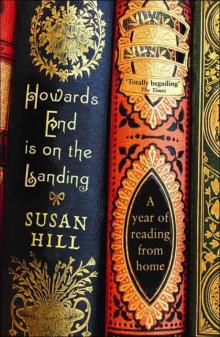 Howards End Is on the Landing: A Year of Reading From Home
Howards End Is on the Landing: A Year of Reading From Home From the Heart
From the Heart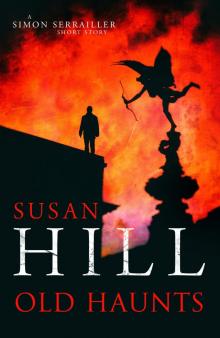 Old Haunts
Old Haunts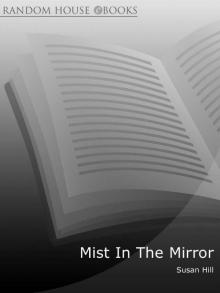 The Mist in the Mirror
The Mist in the Mirror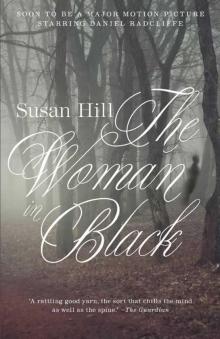 The Woman in Black: A Ghost Story
The Woman in Black: A Ghost Story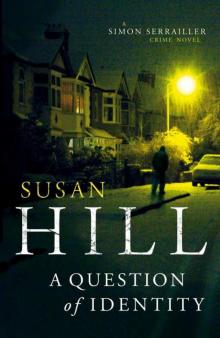 A Question of Identity (Simon Serrailler 7)
A Question of Identity (Simon Serrailler 7)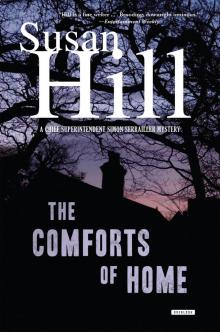 The Comforts of Home
The Comforts of Home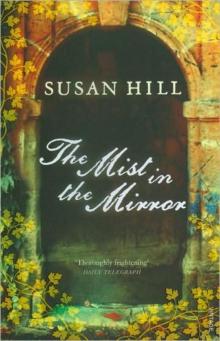 Mist in the Mirror
Mist in the Mirror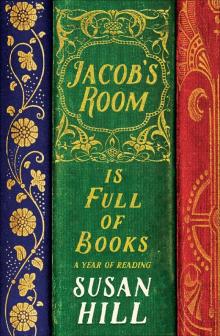 Jacob's Room is Full of Books
Jacob's Room is Full of Books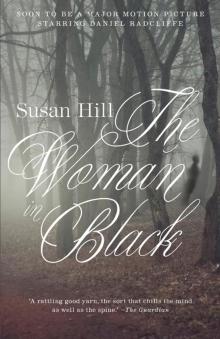 The Woman in Black
The Woman in Black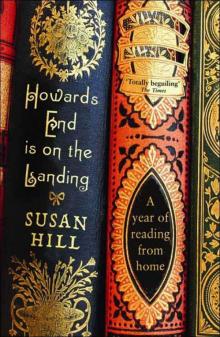 Howards End is on the Landing
Howards End is on the Landing